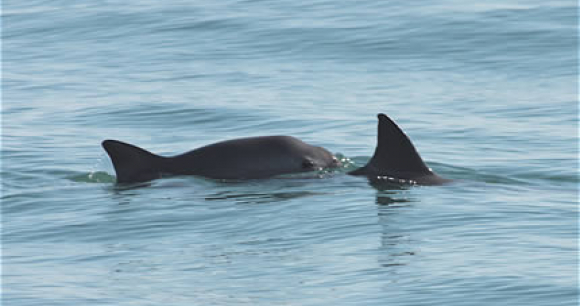
Krakow, Poland—The UNESCO World Heritage Committee (WHC) today gave Mexico one year to improve protections for the only remaining home of the critically endangered vaquita or face an “in danger” designation for the Gulf of California site.
The committee vowed to closely monitor Mexico’s efforts to protect the Islands and Protected Areas of the Gulf of California World Heritage site and the nearly extinct vaquita, a tiny porpoise that can be found only at the site.
The site was created, in part, to conserve critically endangered vaquita and the totoaba. In 2015, the Animal Welfare Institute (AWI) and the Center for Biological Diversity petitioned the World Heritage Committee to list the site as “in danger” due to the species’ decline.
“We are disappointed that the WHC chose to postpone its decision on the ‘in danger’ listing for the Islands and Protected Areas of the Gulf of California World Heritage site. Given the dire situation facing the vaquita, such a delay could mean the loss of this unique species,” said DJ Schubert, wildlife biologist at AWI. “It is absolutely critical that the WHC and the International Union for Conservation of Nature see to it that Mexico goes beyond empty rhetoric and takes all actions necessary to save the vaquita before it’s too late.”
One of the main reasons fewer than 30 vaquita remain is because they continue to become entangled in gillnets illegally set to capture totoaba, an endangered fish. Totoaba swim bladders are in high demand in China and other Asian countries, where some believe them to have healing powers.
Illegal fishing is rampant in the region. Since February 2016, wildlife protection organizations, the Mexican government and fishermen have collected 374 illegal nets—including 220 active totoaba nets and 41 abandoned nets—in only 139 days of searching. Historically, the shrimp industry in the Upper Gulf has been responsible for killing hundreds of vaquita that became entangled in gillnets used to catch shrimp.
“Vaquita are on the precipice of vanishing from the Earth forever,” said Tanya Sanerib, senior attorney with the Center for Biological Diversity, who attended the World Heritage meeting. “The World Heritage Committee’s decision adds yet another urgent call to the chorus, demanding Mexico drastically step up enforcement and save the vaquita, before it’s too late.”
The committee was scheduled to take a final vote on the site’s status at the 41st World Heritage meeting, going on now in Krakow, Poland. But today the committee chose to delay its decision, acknowledging Mexico’s June 30 proclamation of a rule permanently banning gillnet use in a large portion of the Upper Gulf of California.
The rule, while a step forward, has been criticized for not banning the sale or manufacture of gillnets in the region, for exempting two fisheries from the gillnet ban, and for failing to address significant weaknesses in law enforcement.
As part of the ongoing effort to urge the Mexican government to rigorously enforce laws to protect the rapidly disappearing species, AWI and Center members and others plan to rally tomorrow, July 6, outside the Mexican Embassy in Washington, DC. The rally—held in conjunction with the July 8 International Save the Vaquita Day 2017—is one of several happening across the country and the world this week.
To find out how to show support for the vaquita, please visit http://boycottmexicanshrimp.com/.
Amey Owen, (202) 446-2128, [email protected]
About the Animal Welfare Institute
The Animal Welfare Institute is a nonprofit charitable organization founded in 1951 and dedicated to reducing animal suffering caused by people. AWI engages policymakers, scientists, industry, and the public to achieve better treatment of animals everywhere—in the laboratory, on the farm, in commerce, at home, and in the wild. For more information, visit www.awionline.org.
About the Center for Biological Diversity
The Center for Biological Diversity is a national, nonprofit conservation organization with more than 1 million members and online activists dedicated to the protection of endangered species and wild places. For more information, visit www.biologicaldiversity.org.